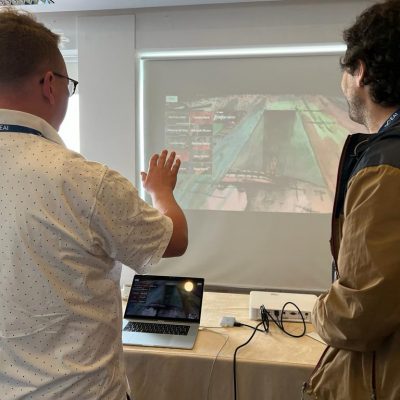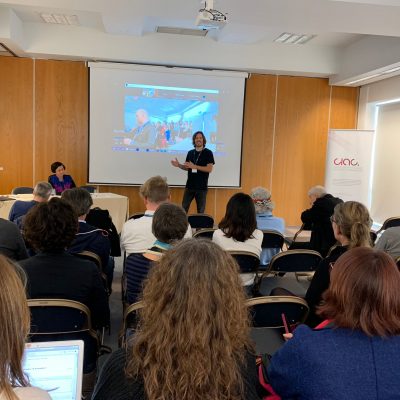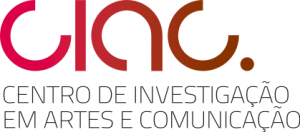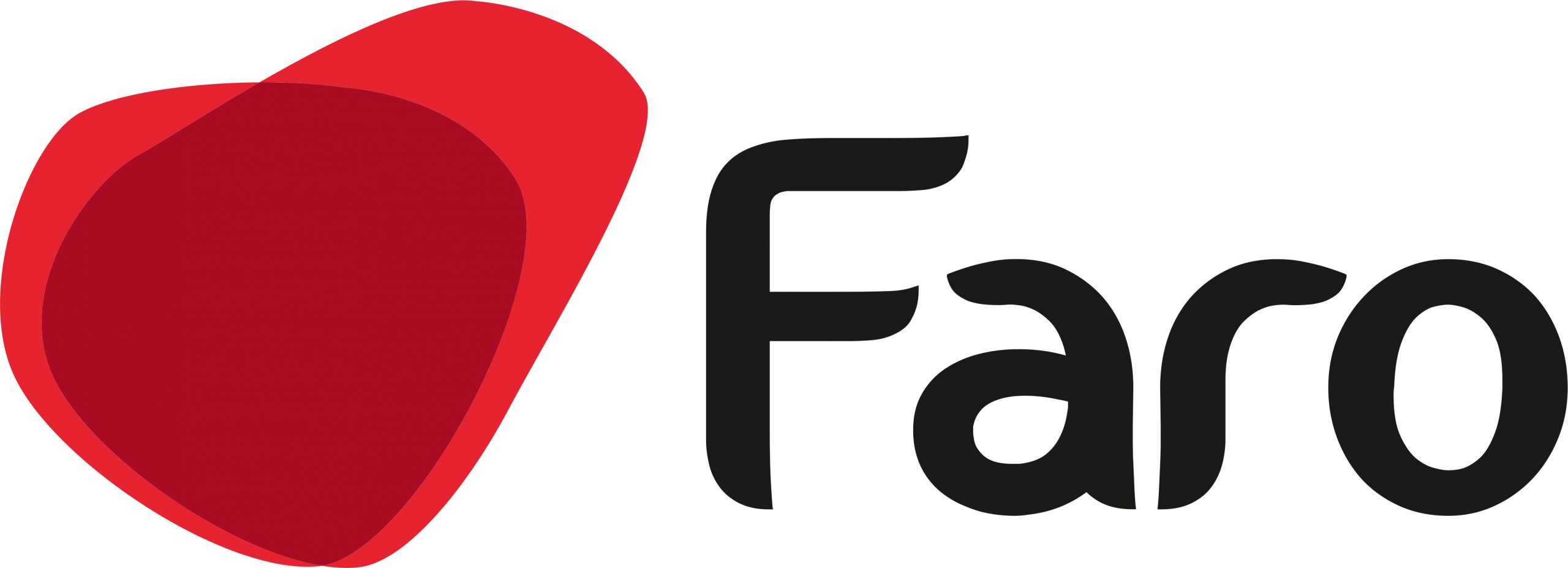EAI ArtsIT 2022 was held as an on-site conference
with an option to present remotely in Faro, Portugal
Don’t miss the opportunity to participate in panel on Serious Games hold by Council of Europe!



with EAI Index:
Find out more about EAI Index
Paper Submission is now open for the 11th edition of ArtsIT! Check out the Call for Papers.The papers of the highest quality will receive the Best paper award!Take a look back at the previous edition of ArtsIT here.ArtsIT 2022 supports revolutionary EAI Community Review, find out more here.Every author receives EAI Index credits – regardless of acceptance. Learn more about EAI’s Recognition Program here.Get real feedback on your presentation from other registrants via EAI Compass.
Proceedings
Update: Proceedings have been published in SpringerLink Digital Library.
The Best Paper Award
The winner of the Best Paper Award:
PirouNet: Creating Dance through Artist-Centric Deep Learning
About ArtsIT 2022
The ArtsIT conference brings together a wide array of cross-/inter-/trans-disciplinary researchers, practitioners, artists, and academia to present and discuss the symbiosis between art (in its widest definition) and information technology applied in a variety of distinct fields. Since 2009 ArtsIT has become acknowledged as a leading scientific forum for the dissemination of cutting-edge research results in the intersection between art, science, culture, performing arts, media, and technology. The role of artistic practice using digital media is also to serve as a tool for analysis and critical reflection on how technologies influence our lives, culture, and society. ArtsIT is therefore not only a place to discuss technological progress but also a place to reflect on the impact of art and technology on sustainability, responsibility, and human dignity. Besides the main track, the event also focuses on the advances seen in two areas that have significantly contributed to the field in the last years, namely, virtualization and artificial intelligence with special sessions.
Read more: Call for Papers
Topics
Topics include the following but are open for additional:
- Virtual Museums and Curatorial Practices;
- Interactive Art & Interactive Installations;
- Augmented Reality & Virtual Reality;
- Virtual Worlds;
- Metaverse, Avatars, and Presence;
- Games & Interactivity;
- Gamification;
- Exhibition;
- Design;
- Augmented Performing Arts;
- Digital Distribution of Performing Arts;
- Audio Art & Sound Design; New Media;
- Technologies Information;
- Visualization; Generative Design;
- Artificial Intelligence & Big Data;
- Digital Cultural Heritage;
- Digital Artworks Addressing the Sustainable Development Goals or other such contemporary topics;
- Theoretical Research in the Fields of Media Technology; Studies that Explore the Role of Media Art in Society;
- and more
Publication
All registered papers will be submitted for publishing by Springer and made available through SpringerLink Digital Library: ArtsIT Conference Proceedings.
ArtsIT proceedings are indexed in leading indexing services, such as Web of Science, Compendex, Scopus, DBLP, EU Digital Library, Google Scholar, IO-Port, MathSciNet, Inspec, and Zentralblatt MATH.
All accepted authors are eligible to submit an extended version in a fast track of:
Additional publication opportunities:
- EAI/Springer Innovations in Communications and Computing Book Series
(titles in this series are indexed in Ei Compendex, Web of Science & Scopus)
About EAI
This event is organized by EAI.
EAI – European Alliance for Innovation is a non-profit organization and a professional community established in cooperation with the European Commission to empower the global research and innovation, and to promote cooperation between European and International ICT communities.
EAI’s vision is to foster excellence in research and innovation on the principles of transparency, objectivity, equality, and openness. Our guiding principle is community cooperation to create better research, provide fair recognition of excellence and transform best ideas into commercial value proposition.
EAI‘s mission is to create an environment that rewards excellence transparently, and builds recognition objectively regardless of age, economic status or country of origin, where no membership fees or closed door committees stand in the way of your research career.
Through these shared values, EAI leads the way toward advancing the world of research and innovation, empowering individuals and institutions for the good of society to fully benefit from the digital revolution.
Gallery of EAI ArtsIT 2022








Welcome to the EAI Community
Let the EAI Community help you build your career with collaborative research, objective evaluation, and fair recognition:
- Extra visibility for your paper and fair review → Community Review
- Get credits to receive membership ranks and global recognition → EAI Index
- Real-time evaluation and feedback on your presentation on-site → EAI Compass
VISIT ALGARVE





Important dates
Submission deadline
10 September 2022
Notification deadline
5 October 2022
Camera-ready deadline
25 October 2022















